Search Results
1586 results for ""
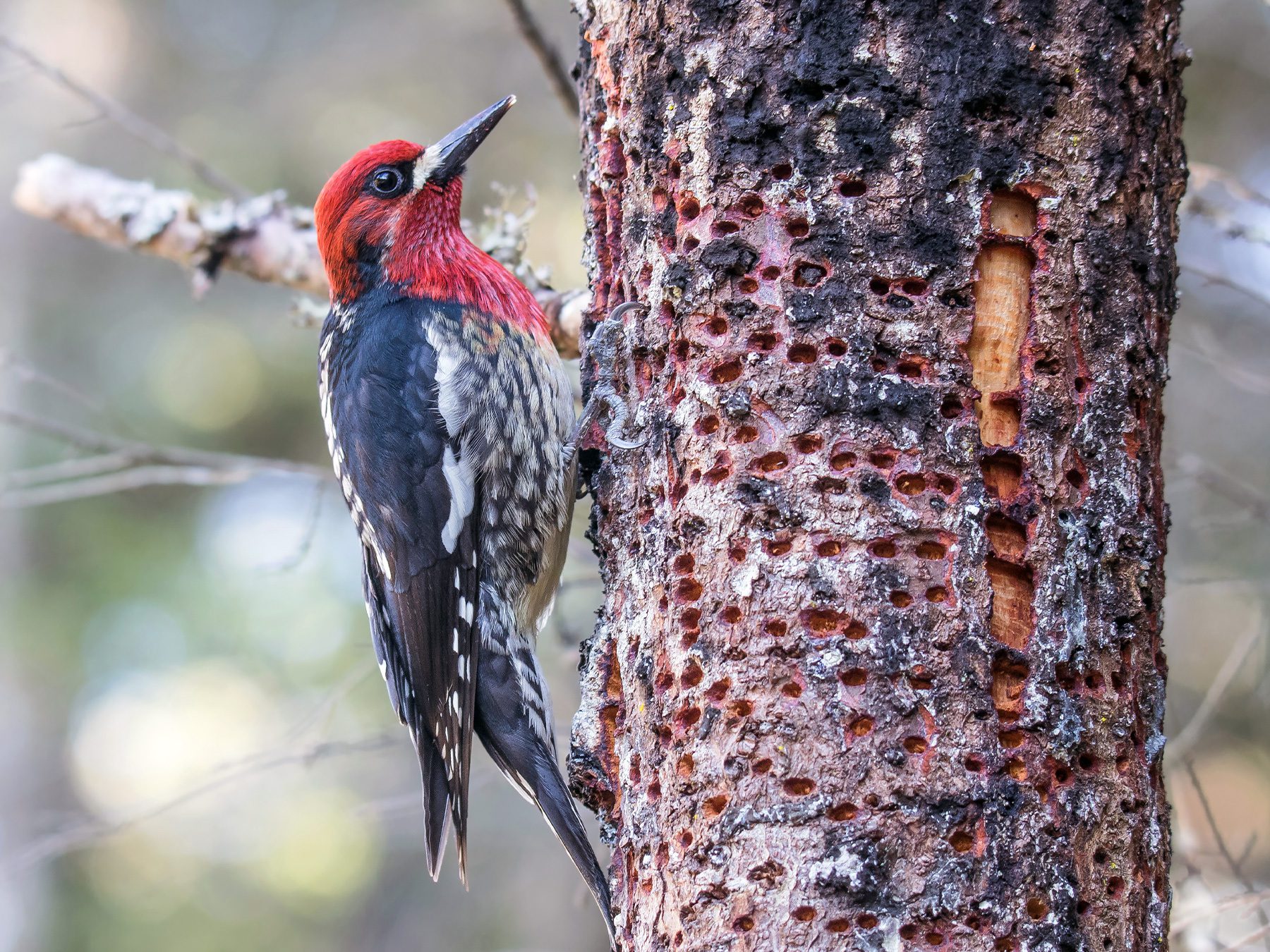
Red-breasted Sapsucker
This vibrant woodpecker drills neat rows of holes in trees, sipping sap and catching insects with its specialized tongue.
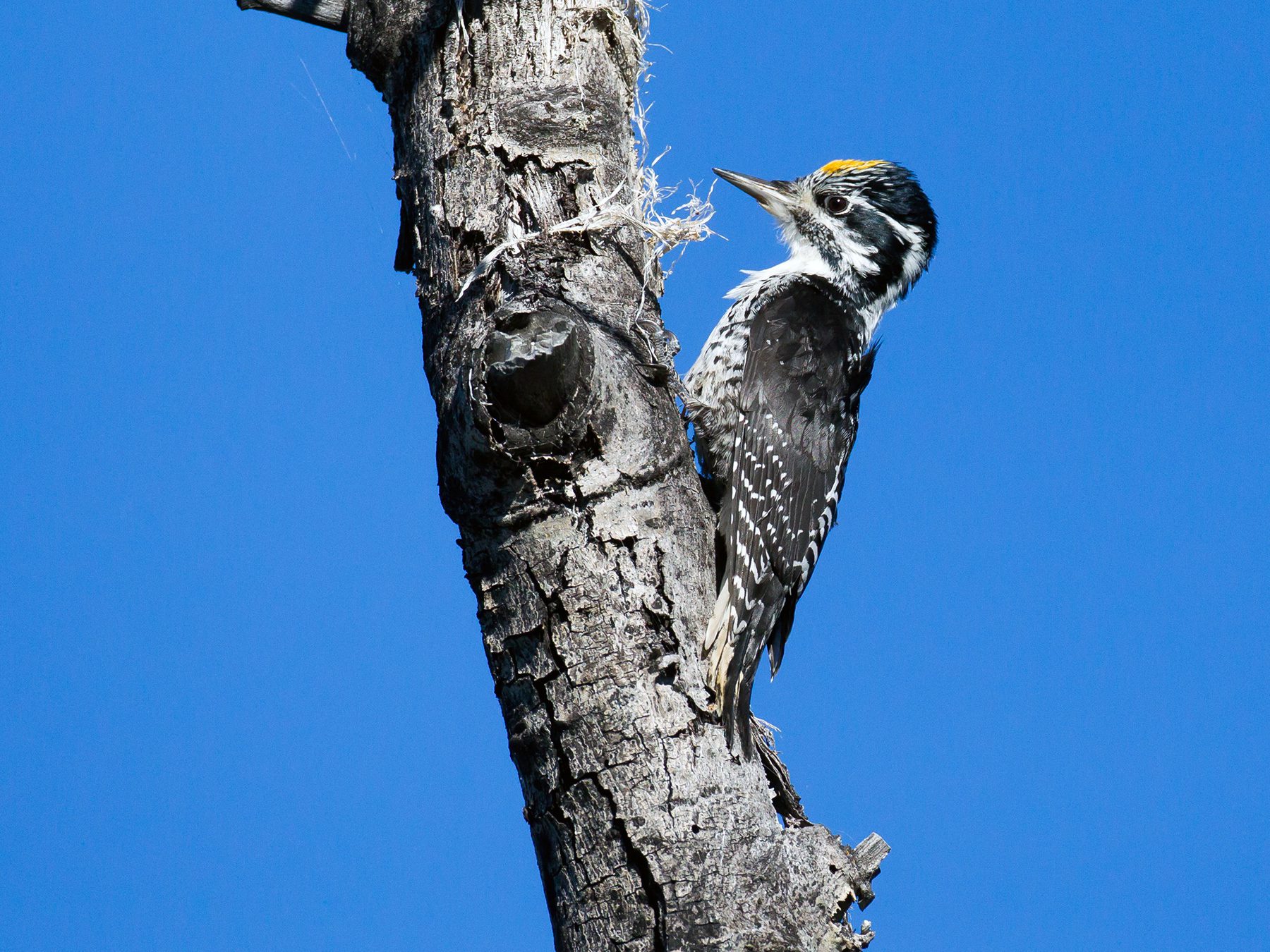
American Three-toed Woodpecker
This nimble forest dweller taps out a distinctive drumming pattern as it hunts for bark beetles across North America's boreal woodlands.
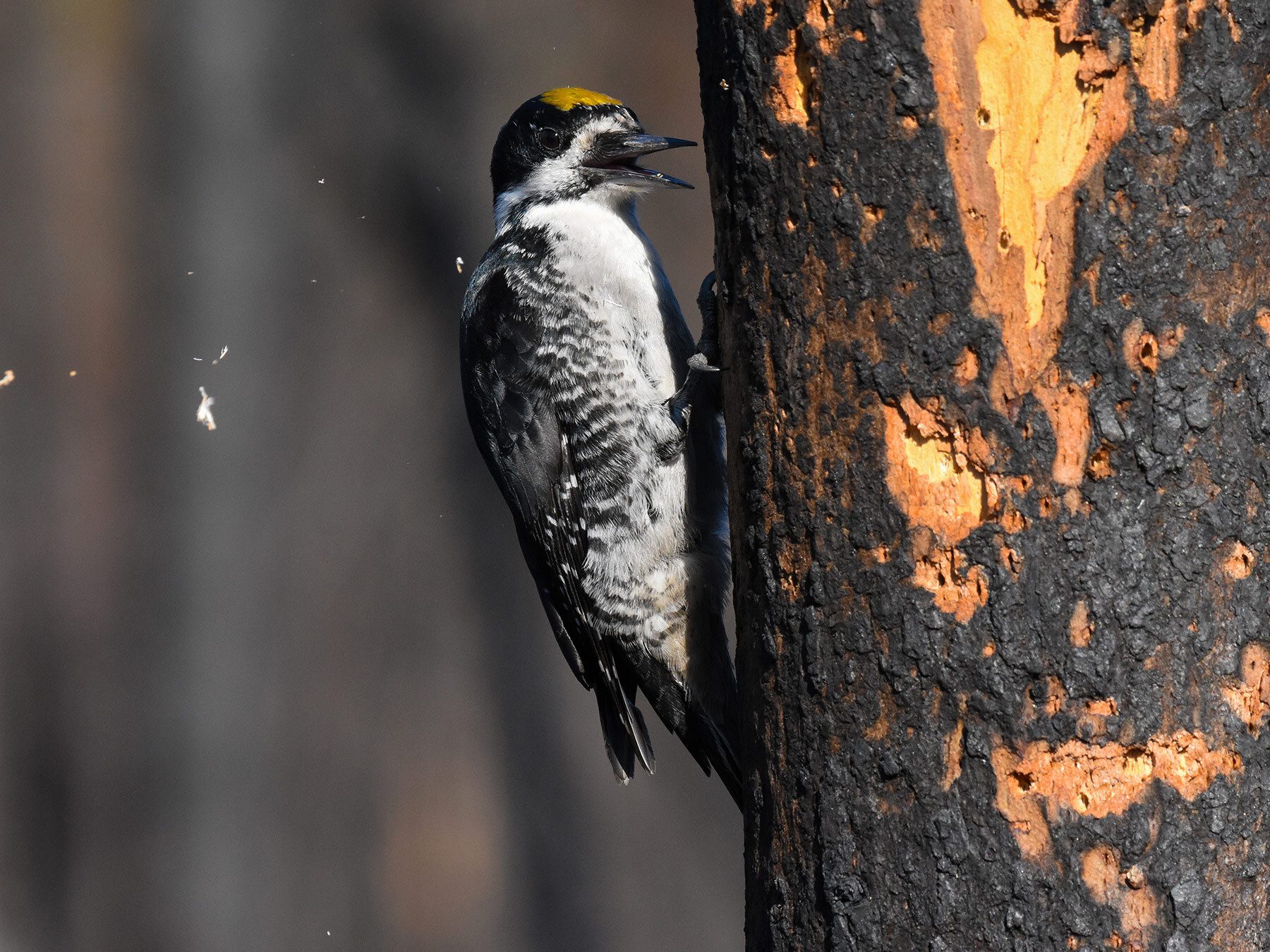
Black-backed Woodpecker
The Black-backed Woodpecker drums its way through burned forests, turning over bark to feast on wood-boring beetles in the charred trees of North America.
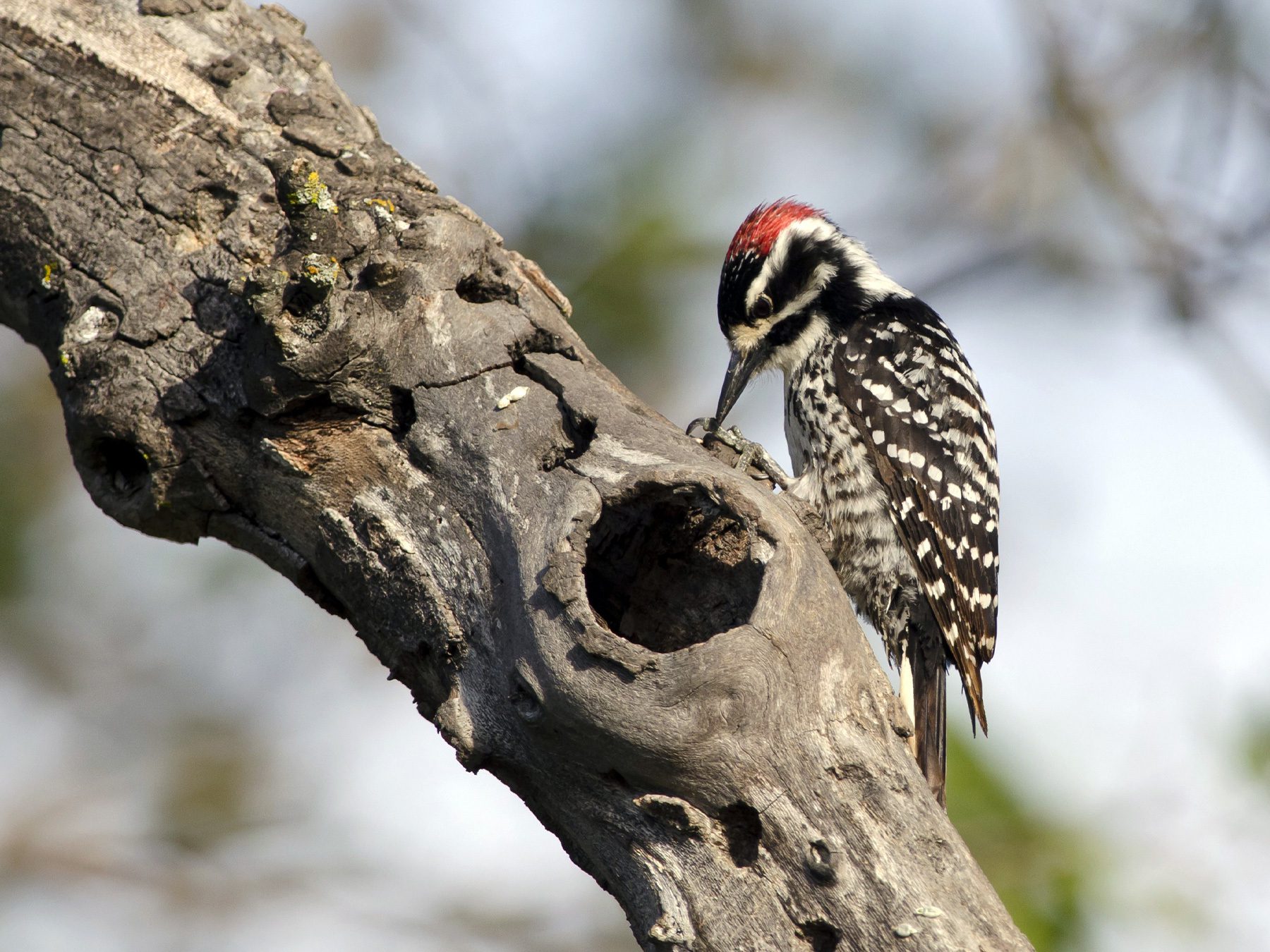
Nuttall's Woodpecker
This small black-and-white striped woodpecker taps out a distinctive drumming pattern across California's oak woodlands.
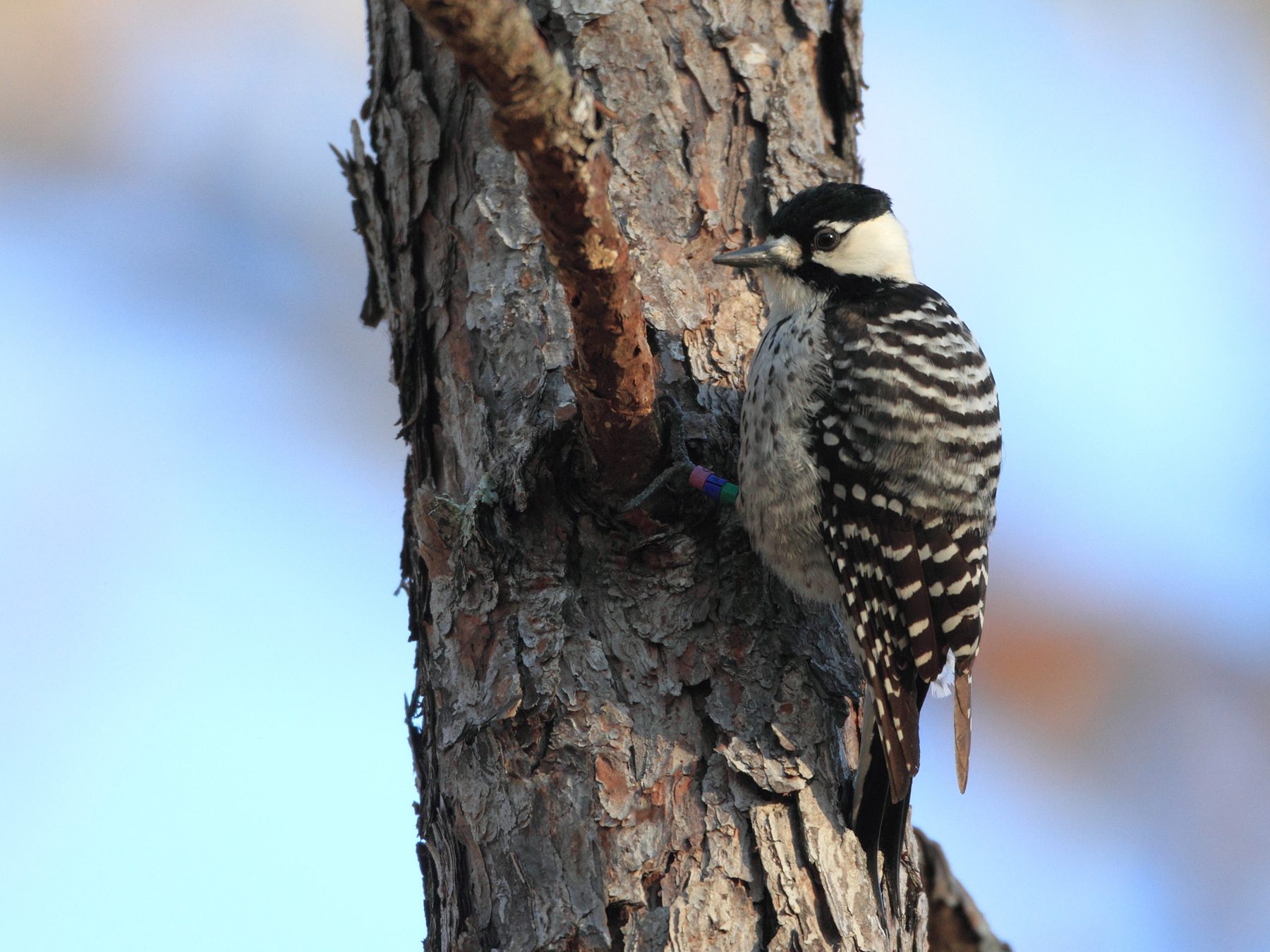
Red-cockaded Woodpecker
This tenacious woodpecker, once widespread across southeastern U.S. pine forests, now fights for survival as a rare and protected species.
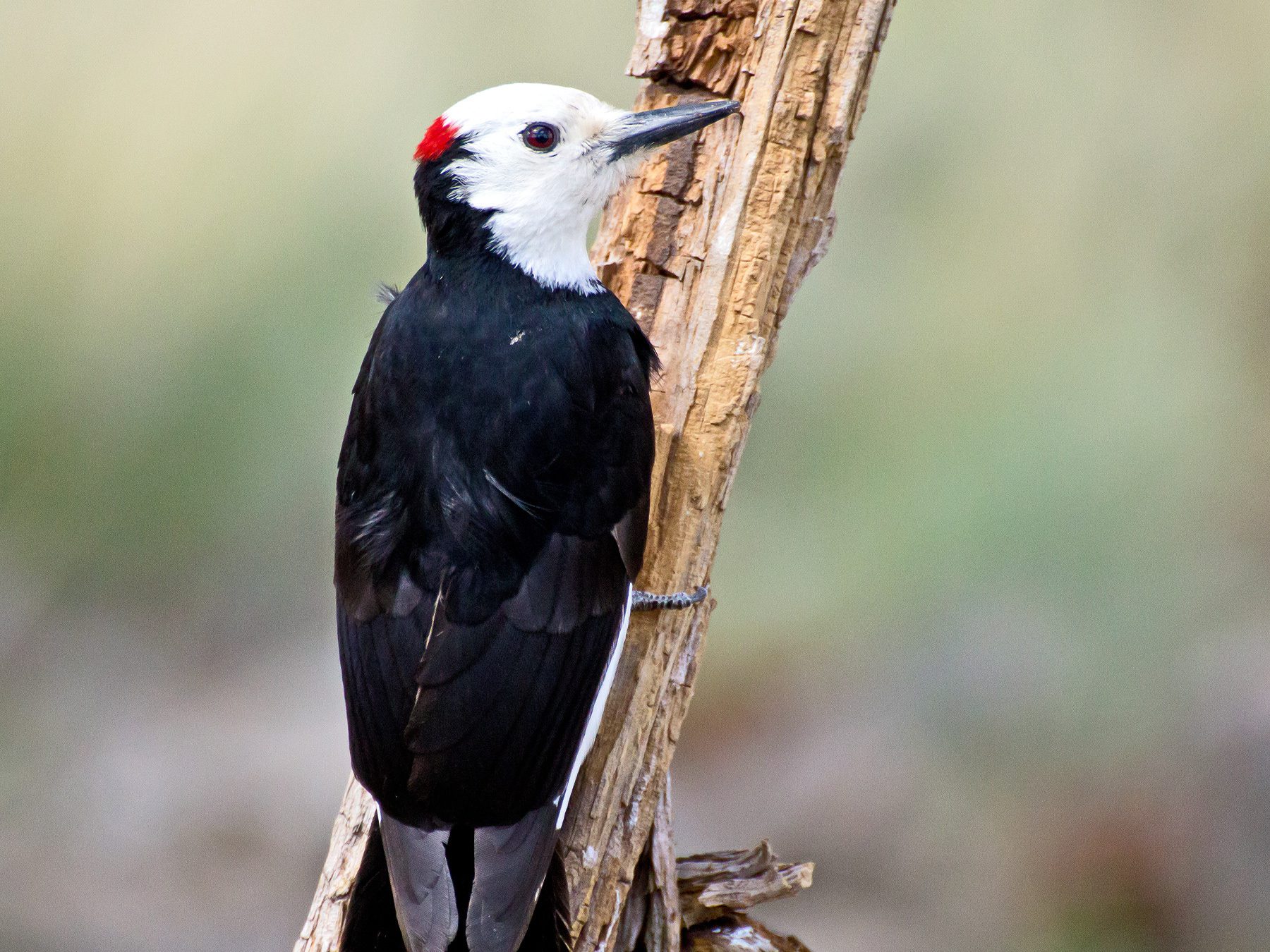
White-headed Woodpecker
Only found in mountainous pine forests of the western United States and in a small region of British Columbia, white-headed woodpeckers are one of North America’s least numerous woodpeckers. Habitat loss, due to logging and removal of snags from coniferous woodlands, is a potential threat to the stability of the species’ population.
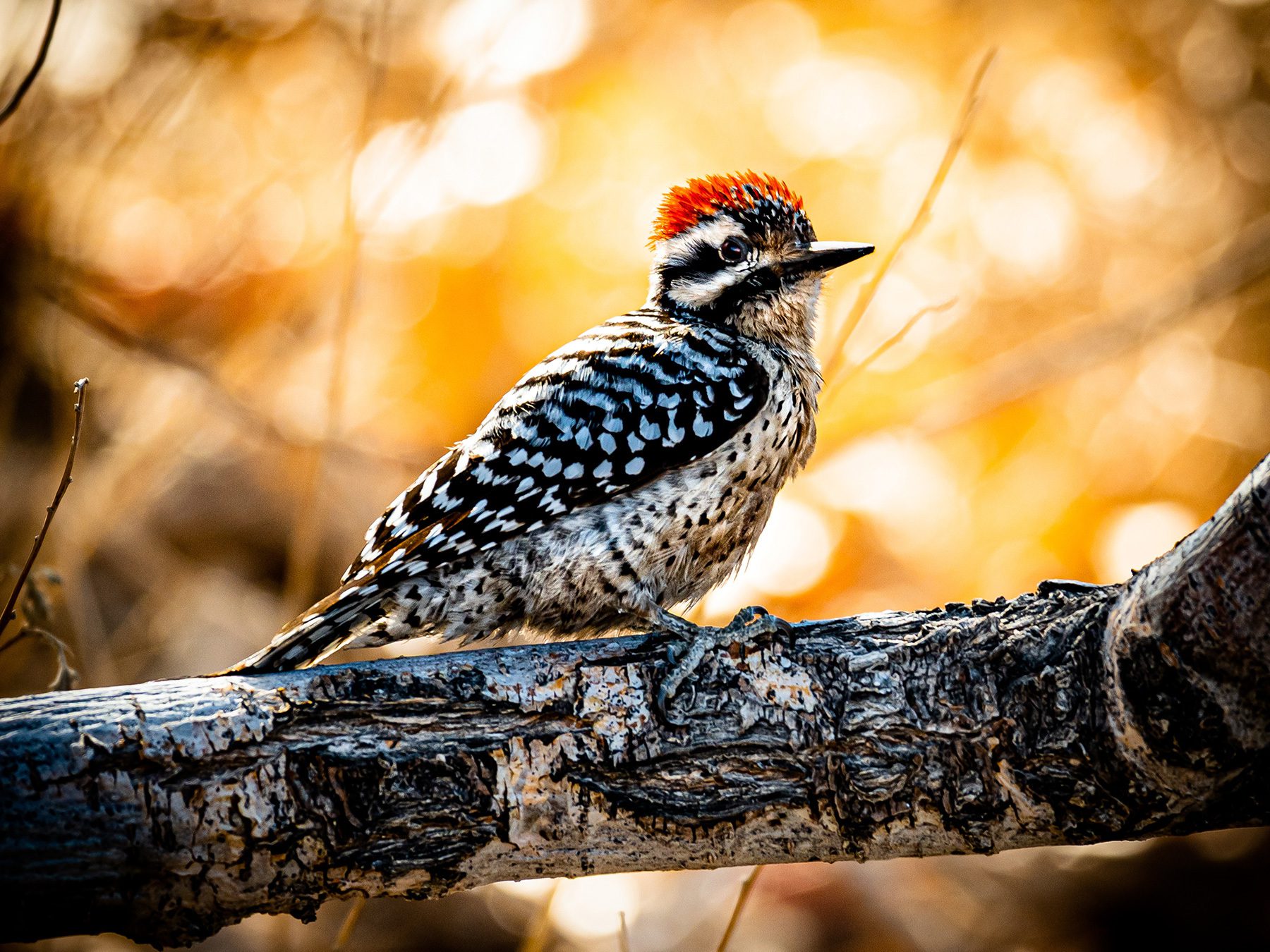
Ladder-backed Woodpecker
Known for its distinctive black-and-white ladder pattern, this woodpecker brings a rhythmic charm to arid landscapes across North America.
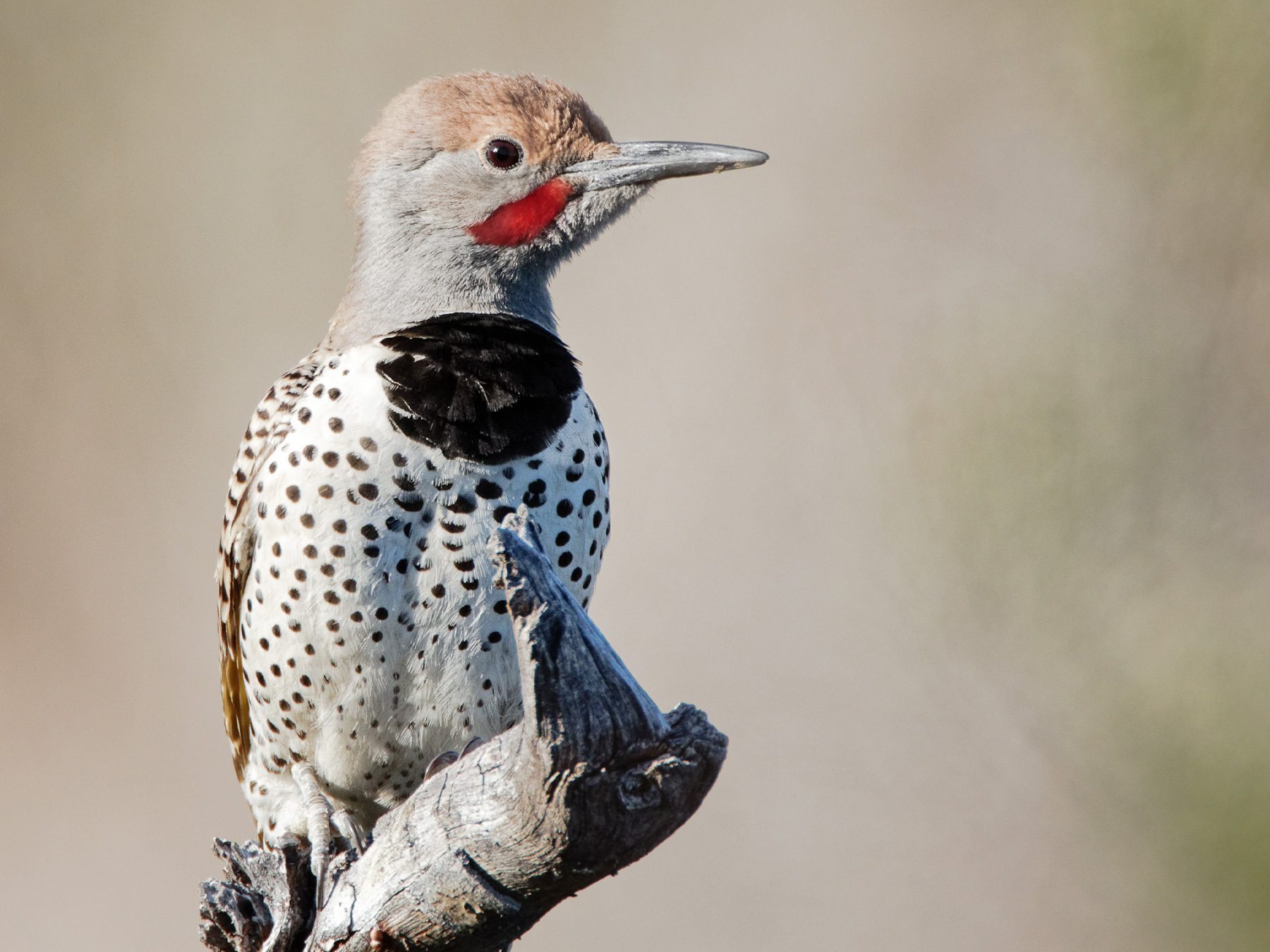
Gilded Flicker
A desert specialist, this golden-winged woodpecker brings life to saguaro forests across the American Southwest.
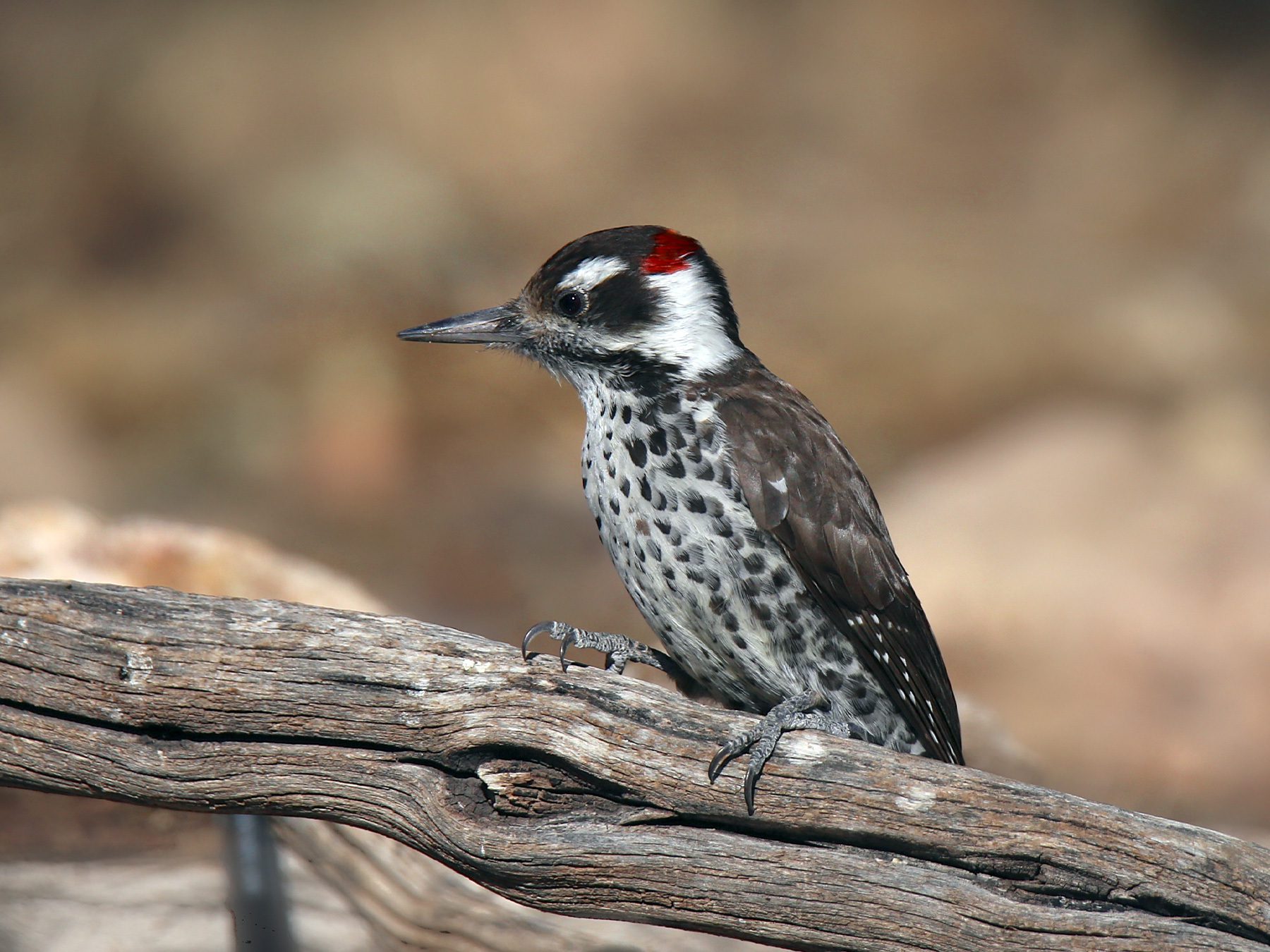
Arizona Woodpecker
With its distinctive black-and-white plumage, this southwestern specialty drums out a lively beat in the oak-pine forests of Arizona and Mexico.
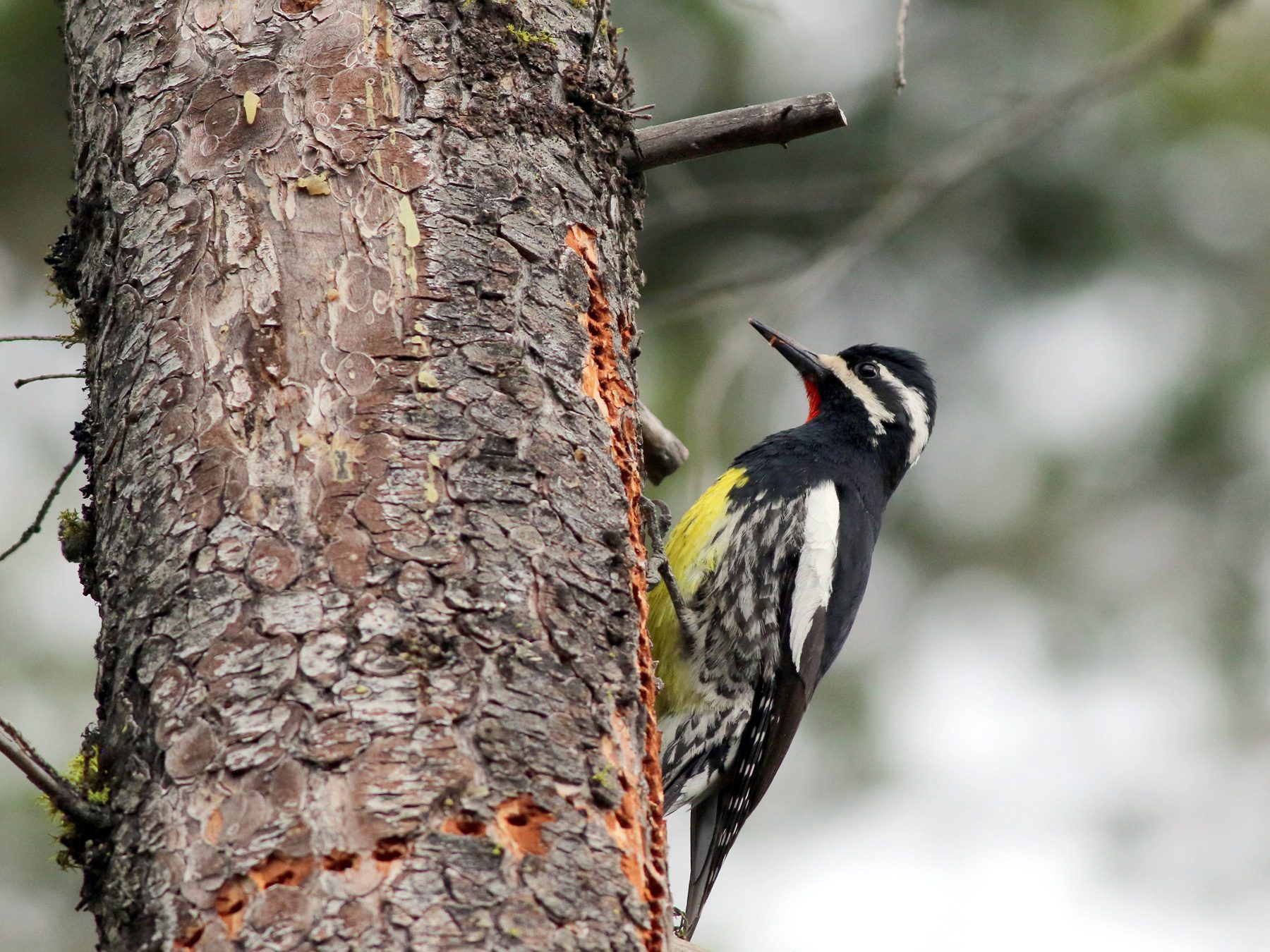
Williamson's Sapsucker
A distinctive woodpecker that exhibits striking sexual dimorphism, with a taste for tree sap and a knack for creating intricate bark patterns.
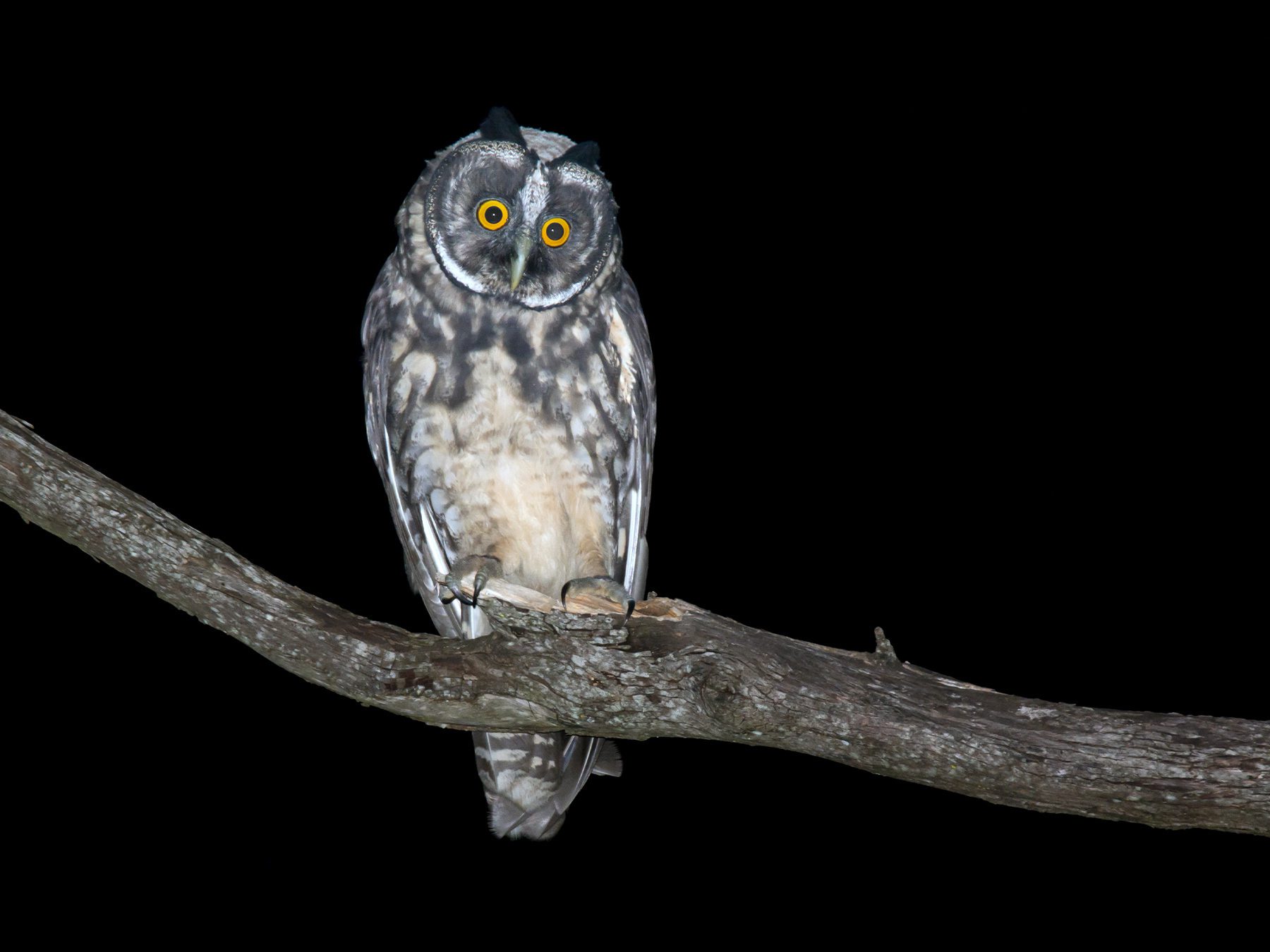
Stygian Owl
This silent night hunter, with piercing yellow eyes and distinctive ear tufts, rules the dark forests from Mexico to Argentina.
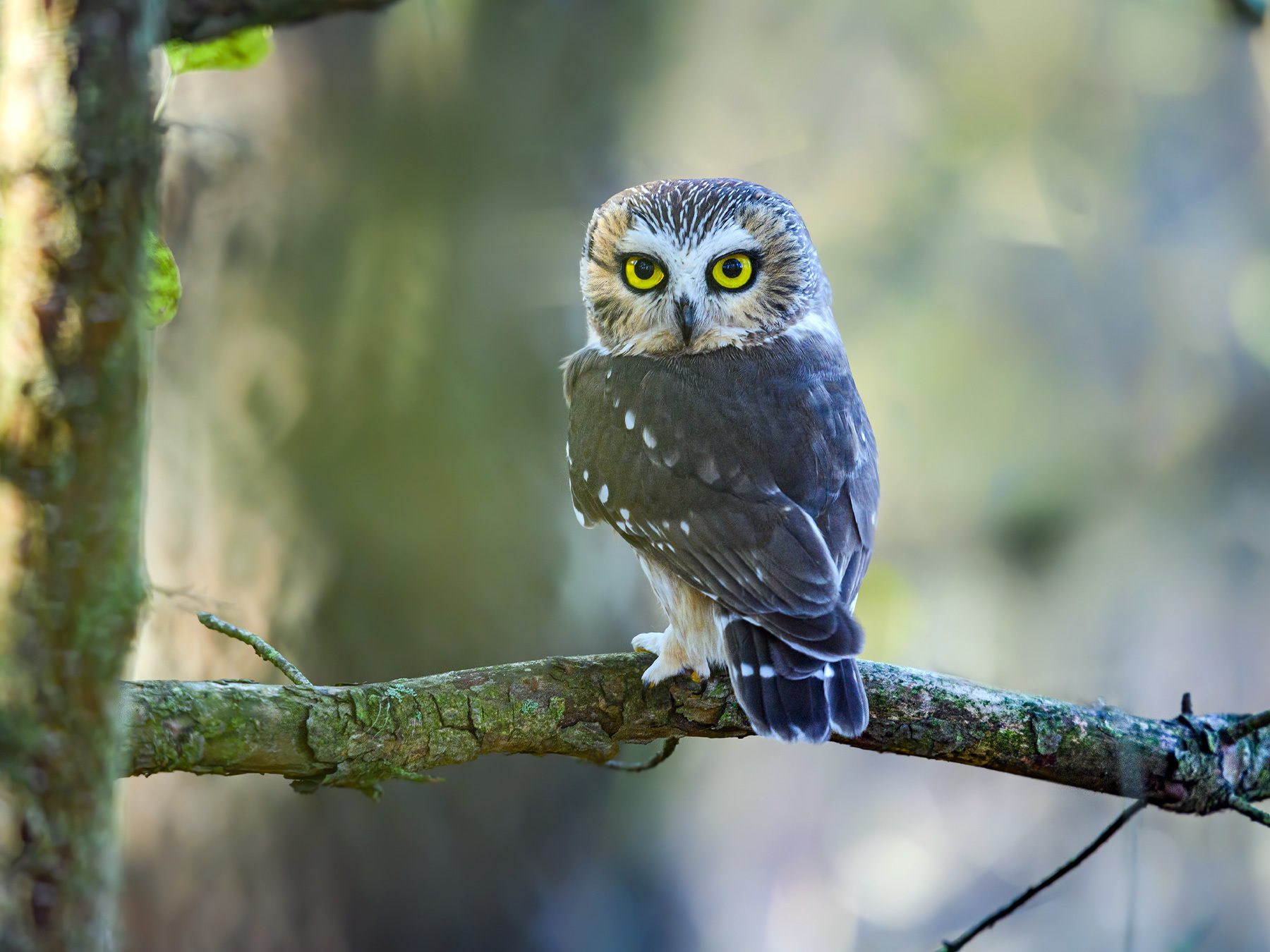
Northern Saw-whet Owl
This tiny owl is common and widespread across coniferous and mixed species forests of Canada and the United States. However, its nocturnal habits and secretive behavior means that sightings remain rare and the species is not particularly well-studied.
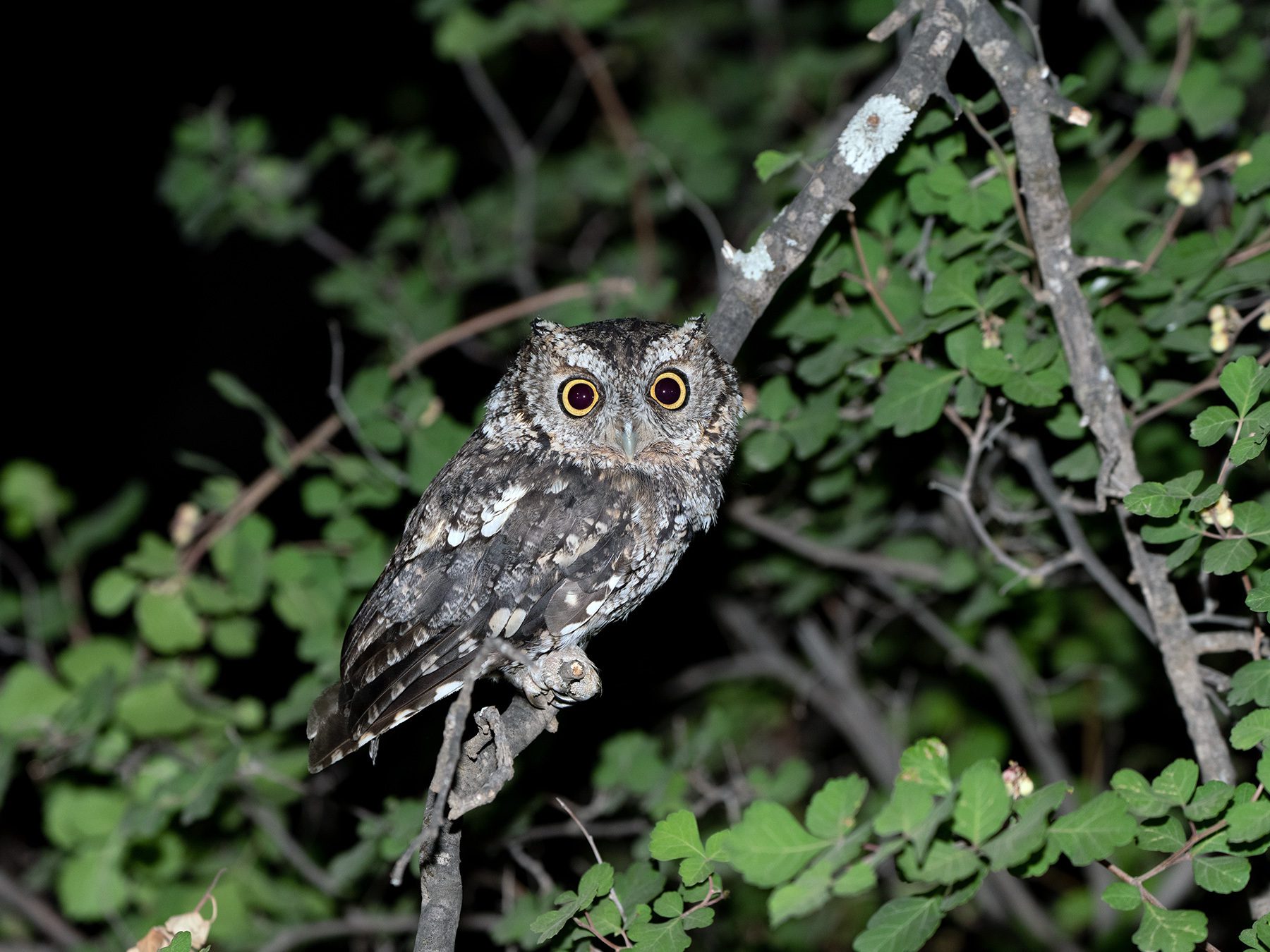
Whiskered Screech-owl
A small, noisy owl that thrives in montane forests from Arizona to Nicaragua, the whiskered screech-owl is named for the tufted bristles on its face. A highly nocturnal bird, the first alert to the presence of a whiskered screech-owl is usually hearing its distinctive trilled song resounding through moonlit woodlands.
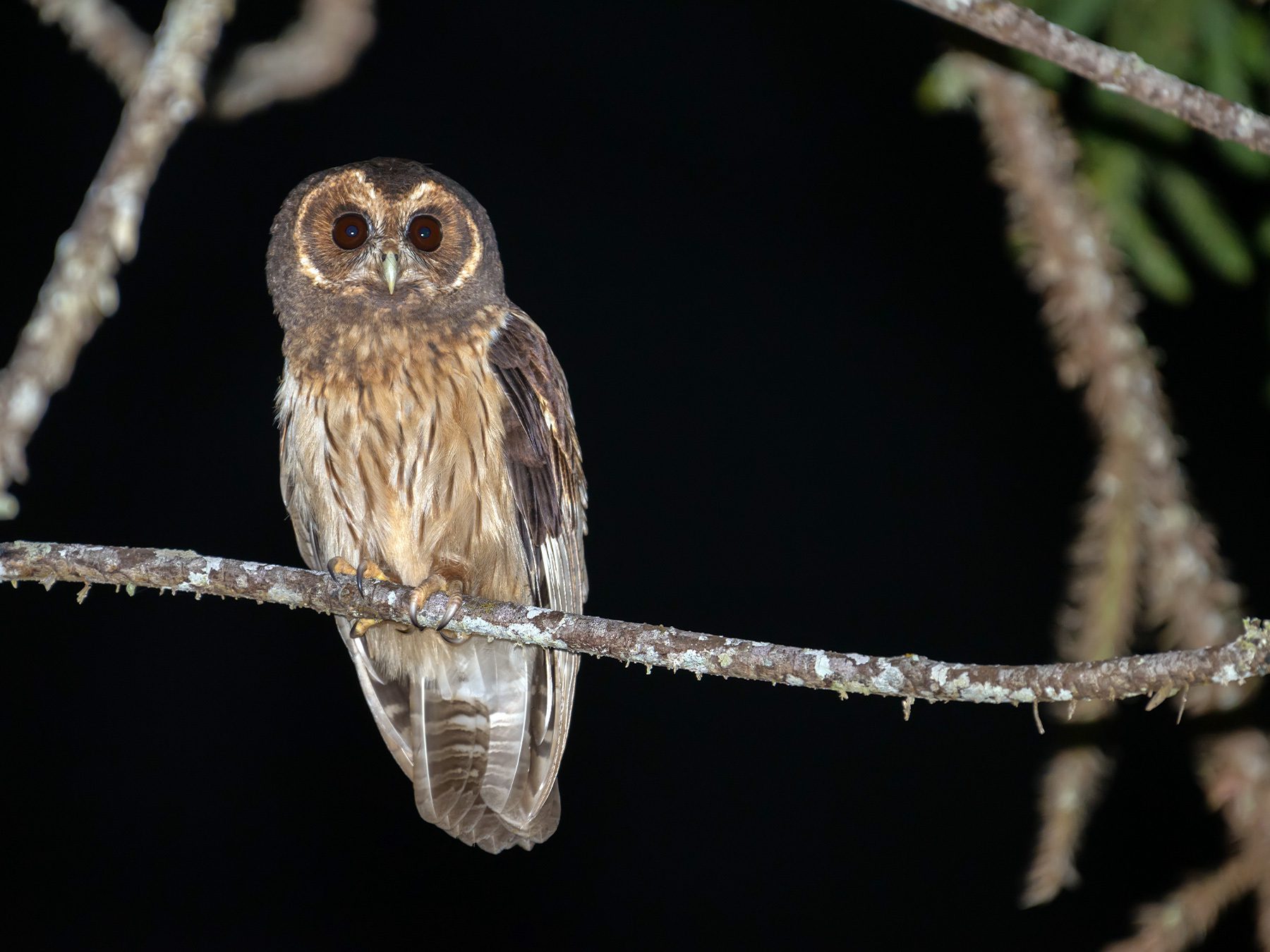
Mottled Owl
This mysterious night hunter silently glides through forests from Mexico to Argentina, its cryptic plumage blending seamlessly with tree bark.
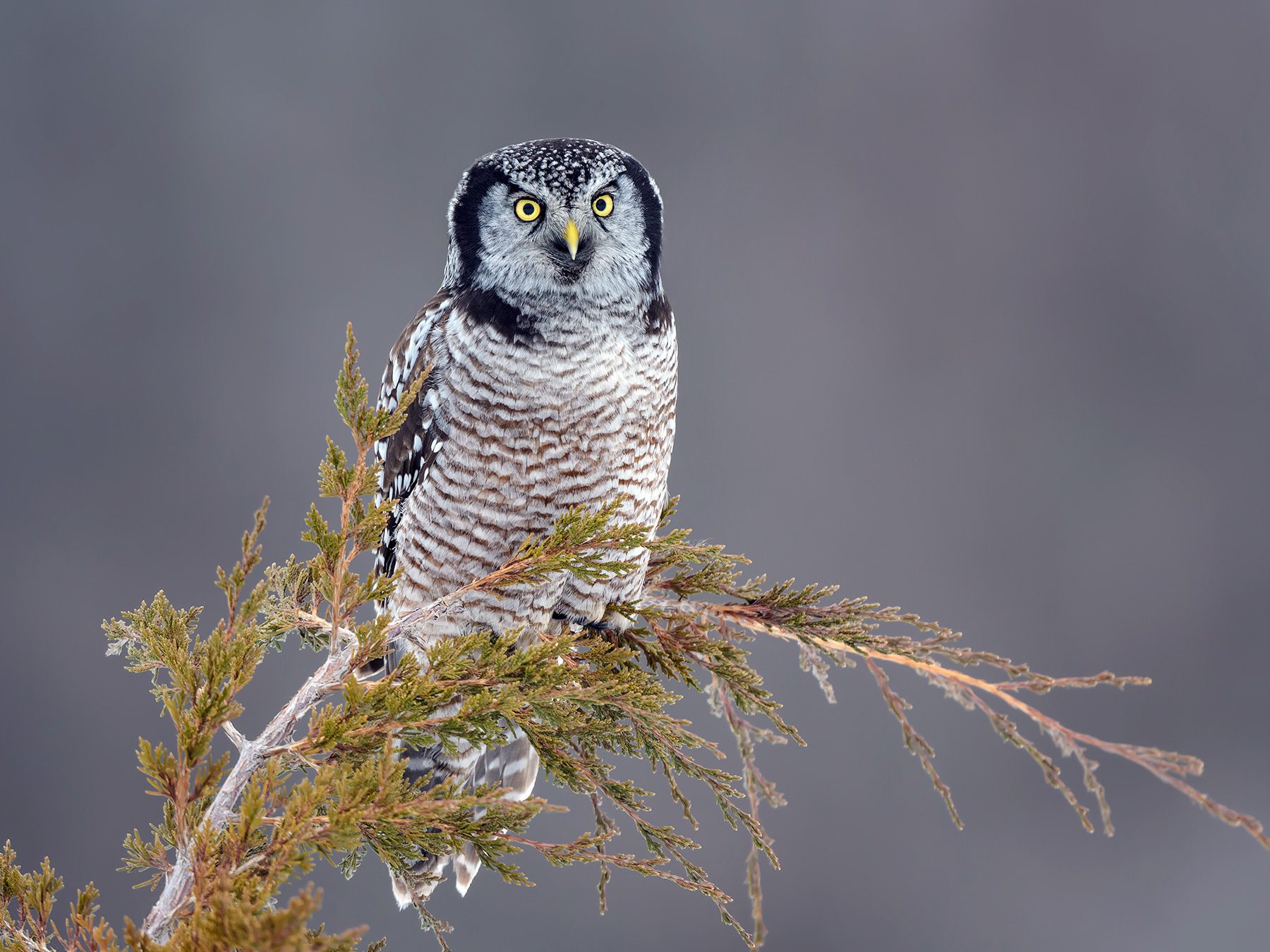
Northern Hawk-owl
With piercing yellow eyes and a falcon-like silhouette, this unusual owl hunts by day across the northern forests of North America and Eurasia.

Ferruginous Pygmy-owl
This tiny predator packs a powerful punch, defying its tiny stature with fierce hunting skills that span forests from Arizona to Argentina.
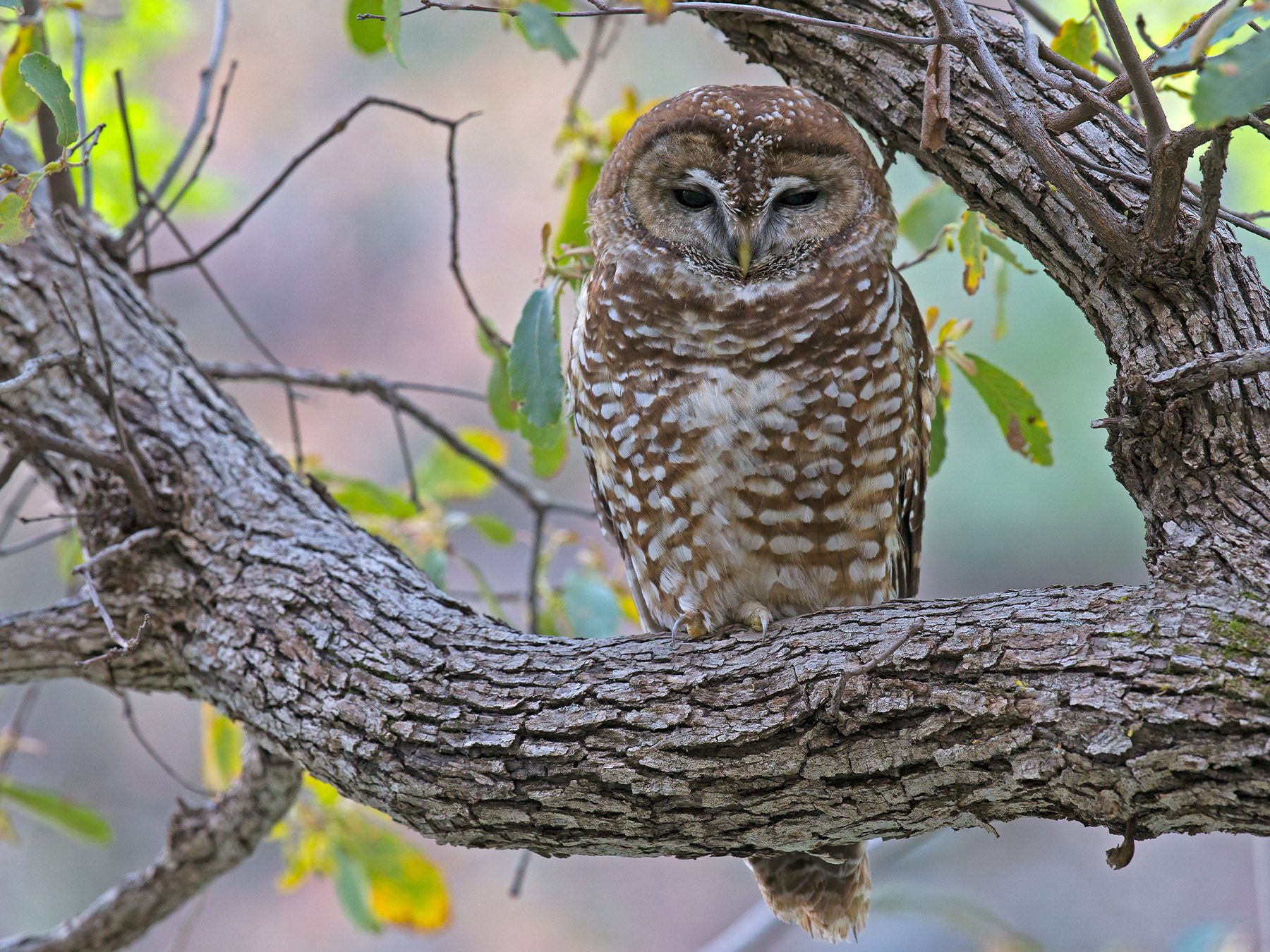
Spotted Owl
Spotted owls are a species of intense conservation concern across North America. Numbers have declined steeply since the increase in logging activities across the Pacific Northwest from the 1970s onwards. Populations have now reached worryingly low levels, with only an estimated 6000 to 15,000 individuals believed to remain in the wild.
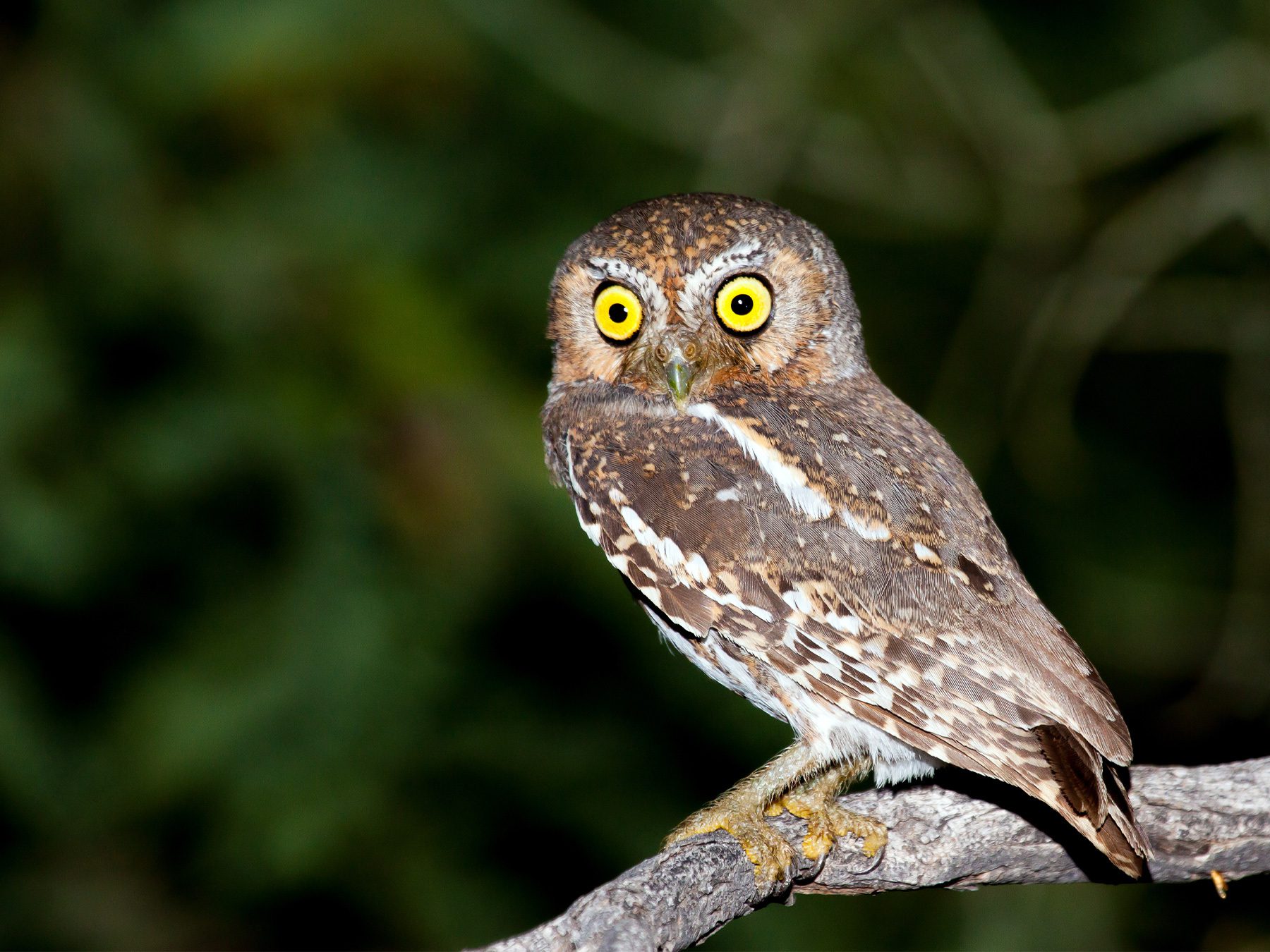
Elf Owl
North America's smallest owl species, elf owls are widespread across the desert landscapes of the US-Mexico borders. Cavities in saguaro cacti are one of their favorite nesting spots.
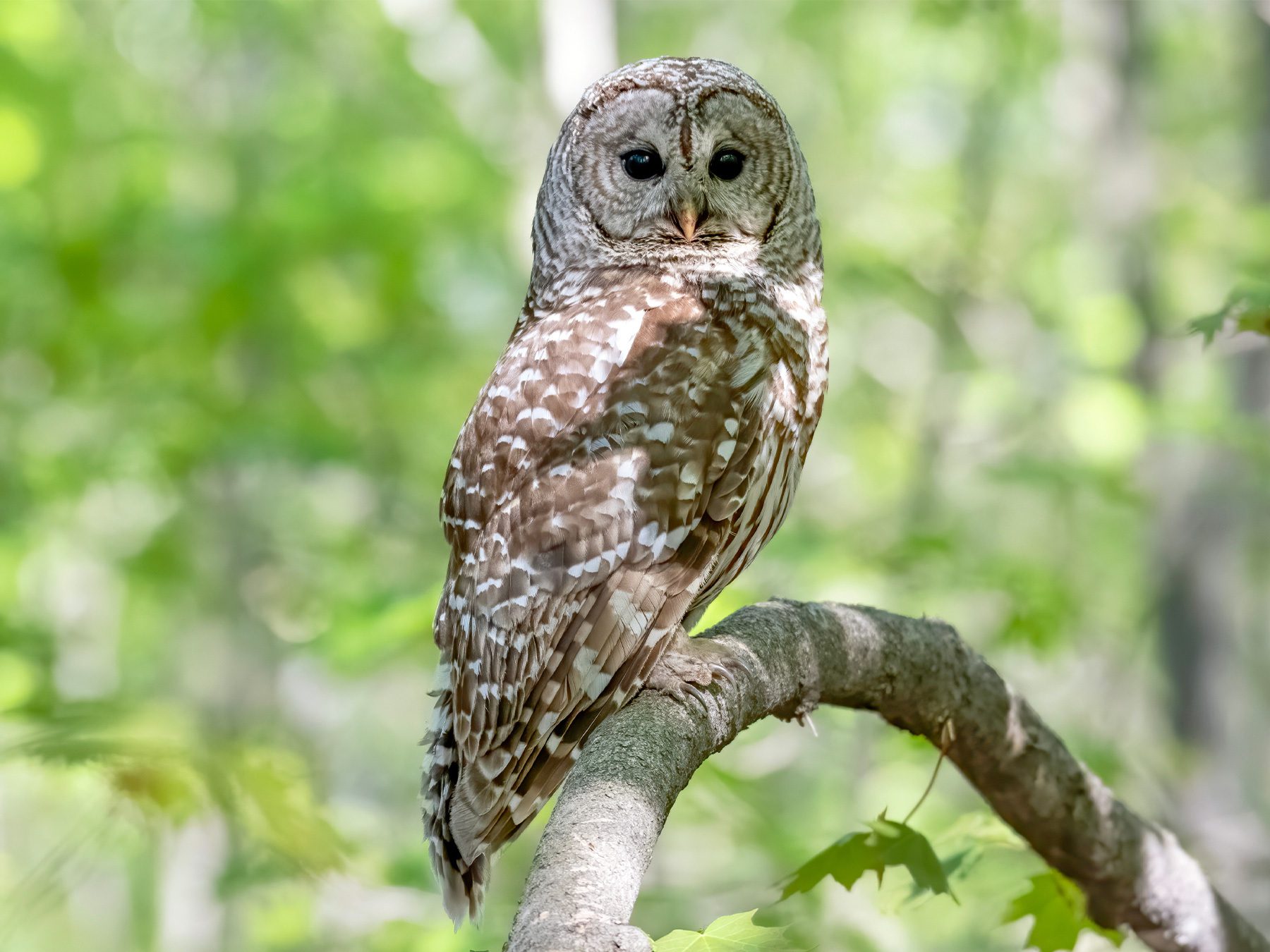
Barred Owl
The Barred Owl's deep "who-cooks-for-you" call echoes through US forests, making it a favorite among night-time listeners.
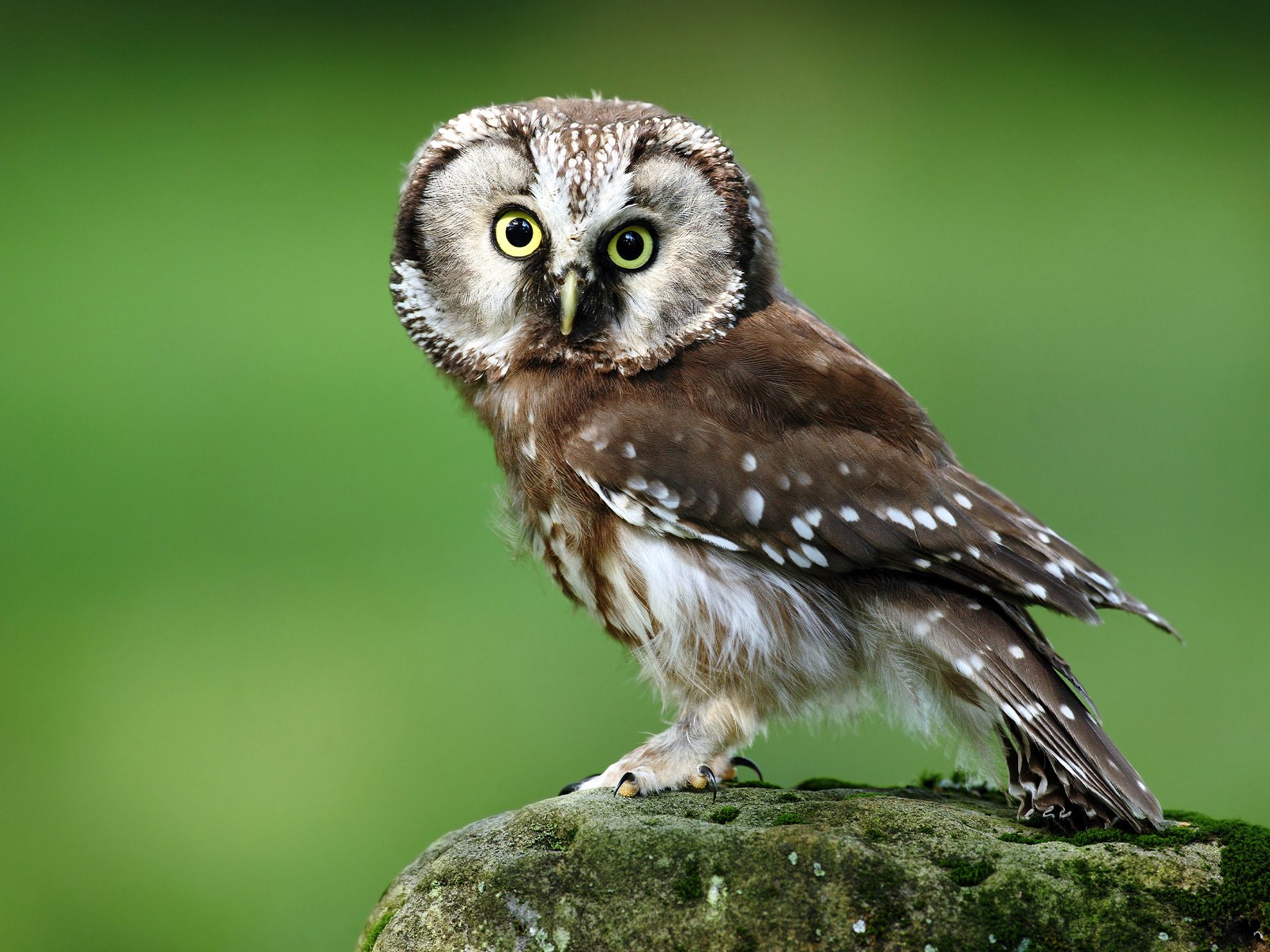
Boreal Owl
The haunting call of this small, round-headed hunter echoes through northern forests at night; a ghostly voice in the wilderness.
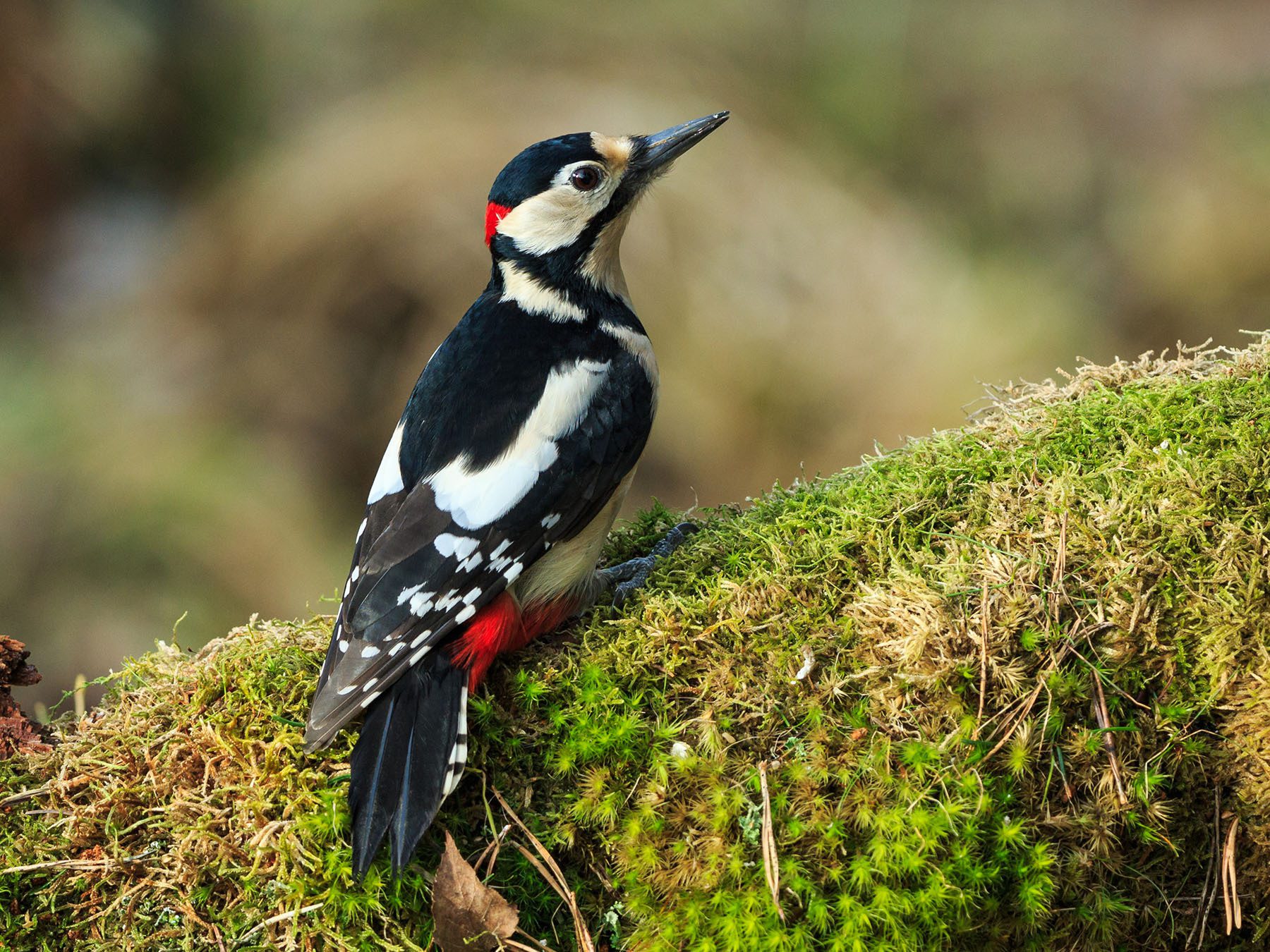
Woodpeckers
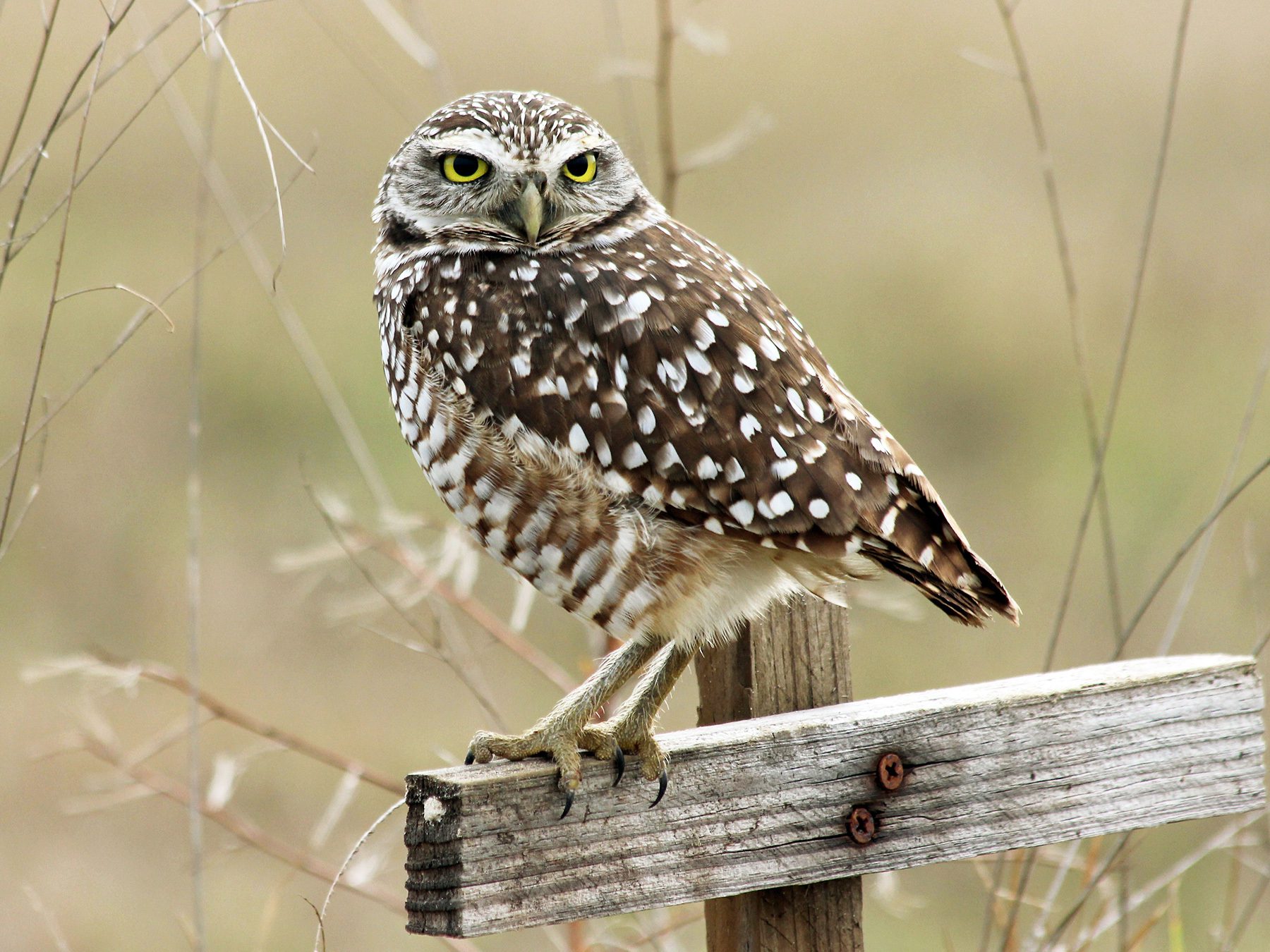
Burrowing Owl
This pint-sized owl defies convention by nesting underground and staying active during daylight hours, making it a unique sight in North and South American grasslands.
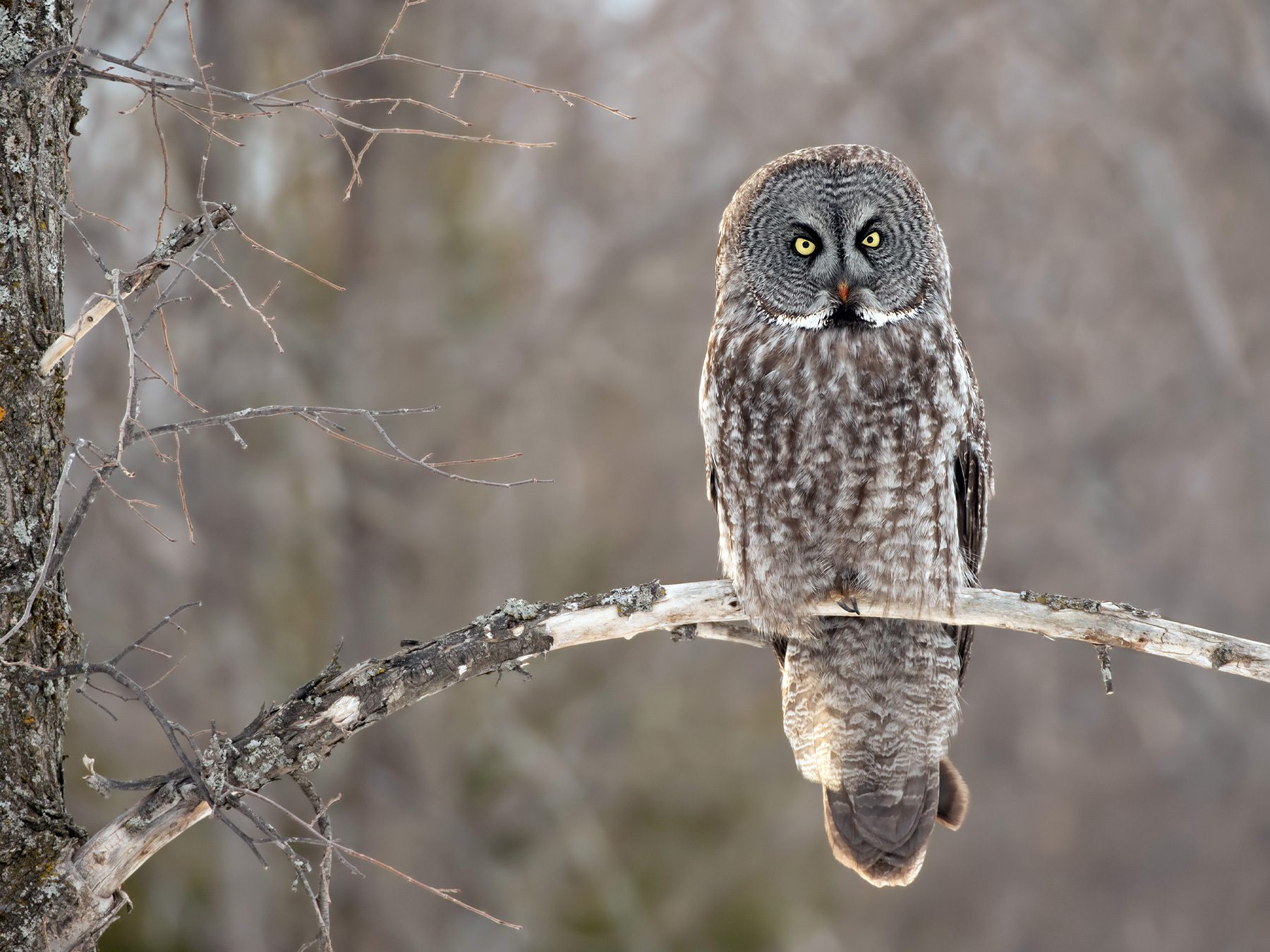
Great Grey Owl
Ghosting through boreal forests with eerily silent flight, this massive owl's piercing yellow eyes and distinctive facial disc make it a haunting presence in northern wilderness areas.
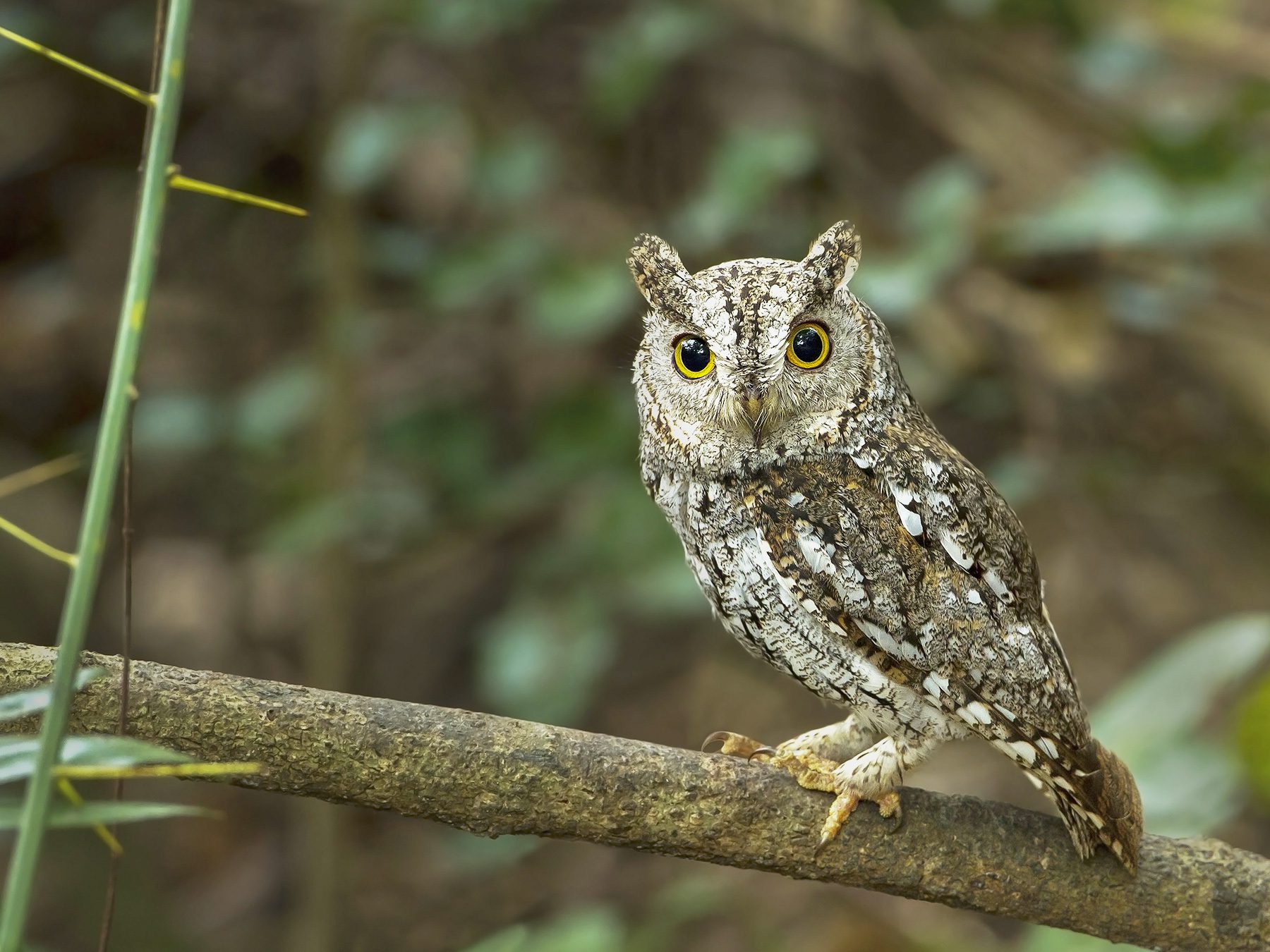
Oriental Scops-owl
A small woodland night hunter, with its piercing yellow eyes and distinctive ear tufts, silently prowls forests across Asia.

Red-breasted Sapsucker
This vibrant woodpecker drills neat rows of holes in trees, sipping sap and catching insects with its specialized tongue.

American Three-toed Woodpecker
This nimble forest dweller taps out a distinctive drumming pattern as it hunts for bark beetles across North America's boreal woodlands.

Black-backed Woodpecker
The Black-backed Woodpecker drums its way through burned forests, turning over bark to feast on wood-boring beetles in the charred trees of North America.

Nuttall's Woodpecker
This small black-and-white striped woodpecker taps out a distinctive drumming pattern across California's oak woodlands.

Red-cockaded Woodpecker
This tenacious woodpecker, once widespread across southeastern U.S. pine forests, now fights for survival as a rare and protected species.

White-headed Woodpecker
Only found in mountainous pine forests of the western United States and in a small region of British Columbia, white-headed woodpeckers are one of North America’s least numerous woodpeckers. Habitat loss, due to logging and removal of snags from coniferous woodlands, is a potential threat to the stability of the species’ population.

Ladder-backed Woodpecker
Known for its distinctive black-and-white ladder pattern, this woodpecker brings a rhythmic charm to arid landscapes across North America.

Gilded Flicker
A desert specialist, this golden-winged woodpecker brings life to saguaro forests across the American Southwest.

Arizona Woodpecker
With its distinctive black-and-white plumage, this southwestern specialty drums out a lively beat in the oak-pine forests of Arizona and Mexico.

Williamson's Sapsucker
A distinctive woodpecker that exhibits striking sexual dimorphism, with a taste for tree sap and a knack for creating intricate bark patterns.

Stygian Owl
This silent night hunter, with piercing yellow eyes and distinctive ear tufts, rules the dark forests from Mexico to Argentina.

Northern Saw-whet Owl
This tiny owl is common and widespread across coniferous and mixed species forests of Canada and the United States. However, its nocturnal habits and secretive behavior means that sightings remain rare and the species is not particularly well-studied.

Whiskered Screech-owl
A small, noisy owl that thrives in montane forests from Arizona to Nicaragua, the whiskered screech-owl is named for the tufted bristles on its face. A highly nocturnal bird, the first alert to the presence of a whiskered screech-owl is usually hearing its distinctive trilled song resounding through moonlit woodlands.

Mottled Owl
This mysterious night hunter silently glides through forests from Mexico to Argentina, its cryptic plumage blending seamlessly with tree bark.

Northern Hawk-owl
With piercing yellow eyes and a falcon-like silhouette, this unusual owl hunts by day across the northern forests of North America and Eurasia.

Ferruginous Pygmy-owl
This tiny predator packs a powerful punch, defying its tiny stature with fierce hunting skills that span forests from Arizona to Argentina.

Spotted Owl
Spotted owls are a species of intense conservation concern across North America. Numbers have declined steeply since the increase in logging activities across the Pacific Northwest from the 1970s onwards. Populations have now reached worryingly low levels, with only an estimated 6000 to 15,000 individuals believed to remain in the wild.

Elf Owl
North America's smallest owl species, elf owls are widespread across the desert landscapes of the US-Mexico borders. Cavities in saguaro cacti are one of their favorite nesting spots.

Barred Owl
The Barred Owl's deep "who-cooks-for-you" call echoes through US forests, making it a favorite among night-time listeners.

Boreal Owl
The haunting call of this small, round-headed hunter echoes through northern forests at night; a ghostly voice in the wilderness.

Woodpeckers

Burrowing Owl
This pint-sized owl defies convention by nesting underground and staying active during daylight hours, making it a unique sight in North and South American grasslands.

Great Grey Owl
Ghosting through boreal forests with eerily silent flight, this massive owl's piercing yellow eyes and distinctive facial disc make it a haunting presence in northern wilderness areas.

Oriental Scops-owl
A small woodland night hunter, with its piercing yellow eyes and distinctive ear tufts, silently prowls forests across Asia.